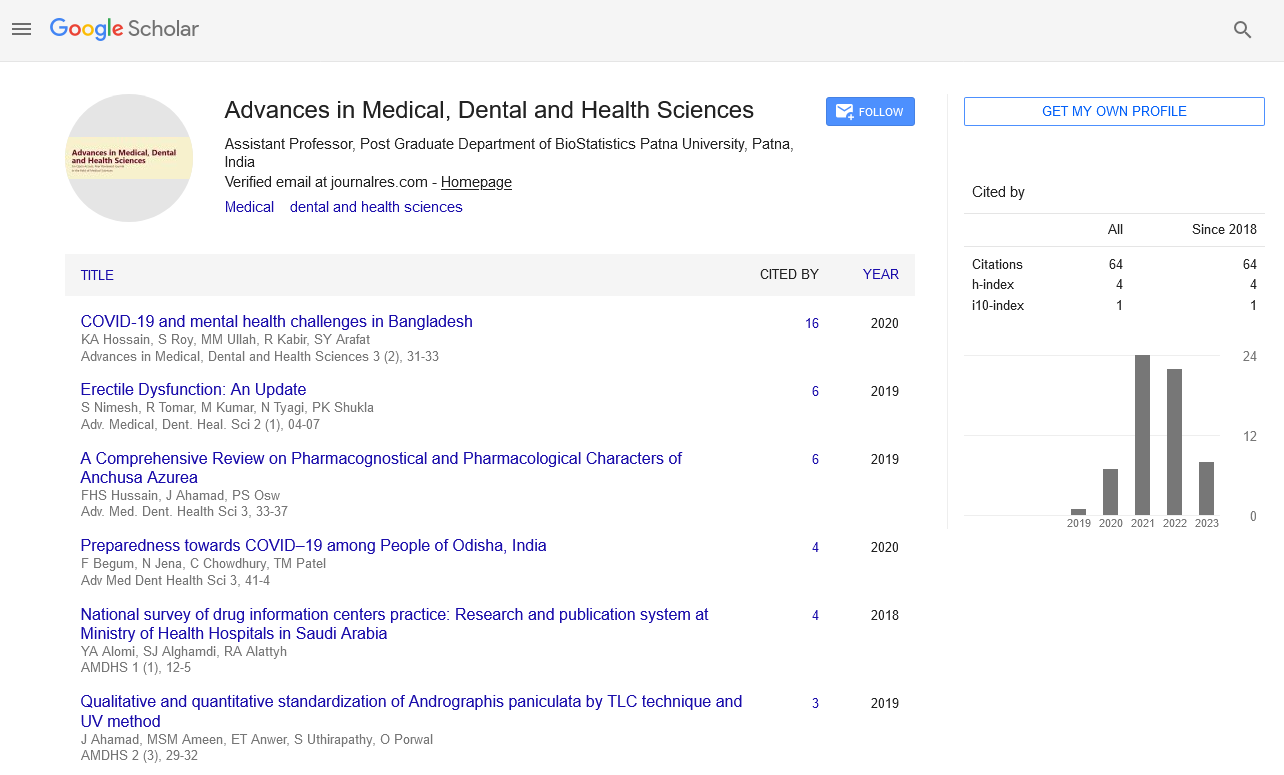Lifestyles patterns and Anthropometric Indices of Healthcare Staff in Jos University Teaching Hospital, Jos, Nigeria
Abstract
Author(s): Olanrewaju, Omoniyi Isaac, Oladapo, Adenike Adesola, Dele-Olawumi Bukola, Odunuga, and Basirat Adebowale
Background: Excessive weight gain, obesity and poor lifestyles are some of the predisposing factors to the burden of non-communicable diseases (NCDs) especially among in Africa continent and other region of the world. Objectives: This study assessed the lifestyles patterns and Anthropometric indices of staff in Jos University Teaching Hospital, Jos, Nigeria. Methods: It was descriptive cross-sectional study which involved 283 staffs who were randomly selected from all the department in the hospital Information were sourced from participants on medical history, dietary habits and lifestyles patterns using a structured, selfadministered questionnaire and anthropometric indices. Data were analyzed using descriptive statistics and chi-square. In all cases, a probability of (<0.05) were taken to indicates level of significance. Results: More than half (64.3%) of the respondents were within the age of 30-49 years. More (68%) female health workers participated in the study than male workers (32%). More half of the respondents (56.2%) had parents that were suffering chronic diseases. Only (21.6%) of the respondents drink alcohol, 2.5% smoke cigarette, 65% did not engage in physical exercise. Large number (86.2%) of the respondents always adds vegetables to their diet and 39.1% took fruit regularly while about 56.2% of the respondent’s parents had chronic diseases. Prevalence of Overweight/Obesity as determined by abnormal values for BMI, WC, WHR and BIA were 48.9%, 31.1%, 43.1% and 65% respectively. Conclusion: This study observed a high level of abnormal body weight status and low consumption of fruits among the hospital staff.
